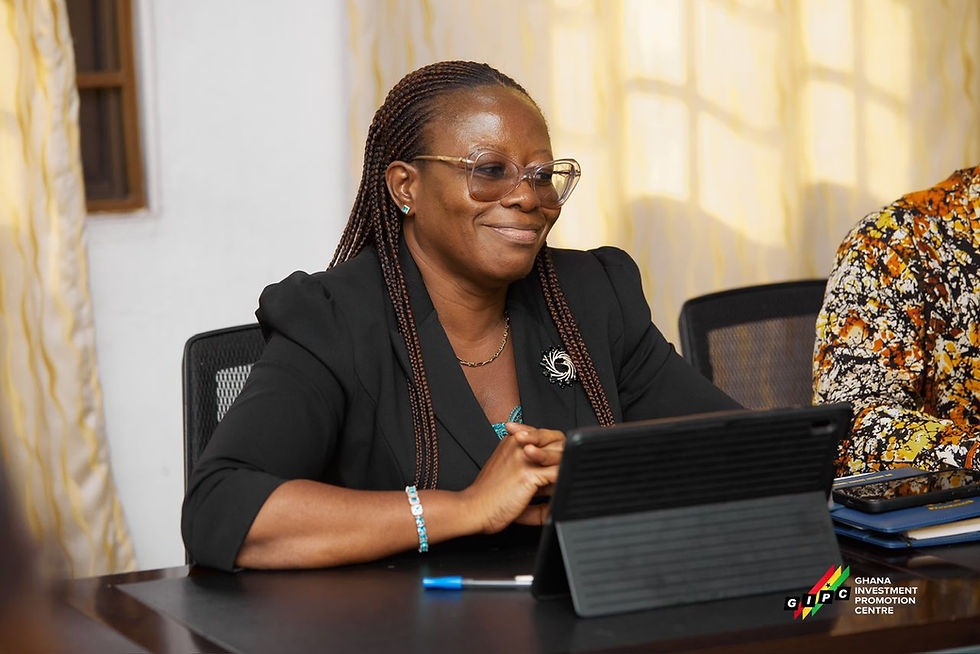"Strengthening local governance depends on accurate data and institutional collaboration" — NDPC Boss
- Think News Online

- Jun 24
- 2 min read

The Director-General of the National Development Planning Commission (NDPC), Dr. Audrey Smock Amoah (FGIP), has underscored the importance of strengthening local governance structures in Ghana to ensure the creation of sustainable and well-functioning cities and towns.
Speaking on an Accra-based television station on Tuesday on the topic “Strengthening Local Governance to Achieve the Desired Cities and Towns We Want in Ghana,” Dr. Amoah highlighted that effective governance is deeply linked to data quality, inter-agency coordination, and the regular monitoring of development plans.
“We have a well-established system that mandates quarterly and annual reports in accordance with L.I. 2232. These reports are directly linked to the national budget, and they help track implementation progress at every level,” she explained.
Dr. Amoah noted that to measure progress accurately, the NDPC has developed a set of core national indicators that cover the key dimensions of development: economic, social, environmental, governance, and international relations.
All sub-national levels — including Metropolitan, Municipal, and District Assemblies (MMDAs) — are required to report based on these indicators.
“Reviewing these reports and providing feedback to the institutions has significantly helped improve the quality of reporting. We don’t just collect the data — we rank the institutions based on the quality of their submissions, which also motivates better compliance,” she said.
However, Dr. Amoah admitted that data discrepancies remain a major challenge across all governance levels. She expressed concern about the inconsistency in data provided by different institutions, even when referring to the same subject matter.
“You may receive the same report from different departments, but with different figures. That undermines planning. If we’re dealing with the same issue, we should get the same data,” she emphasized.
Dr. Amoah stressed that better communication between institutions is essential to solving the data inconsistency problem.
"Institutions must begin to talk to one another. We’ve tried to promote inter-sectoral collaboration, but the challenge is that not all institutions are decentralized according to our 261 district structure.”
She cited examples such as the Electricity Company of Ghana (ECG) and the Ghana Water Company, whose operational boundaries often do not align with the district demarcations, making it difficult to disaggregate their data for accurate district-level analysis.
“Sometimes, you find that a dataset covers parts of two different regions simply because it was easier for the institution to present it that way. But when it comes to assessing growth or determining where to allocate resources, this becomes a major obstacle,” Dr. Amoah said.
She concluded by calling for stronger communication channels between national and regional offices, and ultimately with the MMDAs at the grassroots level, to ensure data integrity and more effective planning.
“Improving data coordination and inter-institutional collaboration is not just a technical issue. It is the foundation for the kind of cities and towns we want to build for the future,” she said.
Story by: Joshua Kwabena Smith








Comments